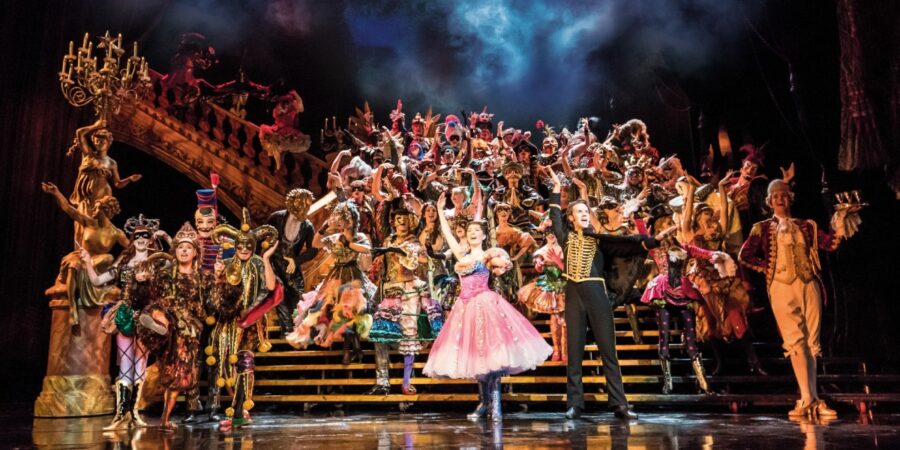From the rustic timbers of Shakespeare’s Globe to the glitz of the West End and the innovation of immersive productions, British theatre remains one of the world’s most enduring cultural powerhouses. Its success lies in the UK’s unique blend of historical reverence, technical excellence, and ceaseless reinvention, an art form forever rooted in tradition yet ever-evolving in response to contemporary voices and technologies.
A Legacy Written in Verse
At the heart of British theatrical history stands William Shakespeare, the playwright whose influence transcends language and era. His works, first performed in the original Globe Theatre, constructed in 1599, are not static relics but living texts. The Globe’s modern reconstruction, spearheaded by Sam Wanamaker and opened in 1997, exemplifies Britain’s ability to honor its past while invigorating it for new audiences.
Shakespeare’s legacy set the stage, quite literally, for a national theatre culture that places immense value on the power of language, the complexity of character, and the depth of human experience. The Bard’s presence is not confined to a single stage but echoes across centuries of British theatrical tradition, shaping not only what is performed, but how.
The West End: Commerce Meets Craft
If Shakespeare is the soul, London’s West End is the engine. Its story begins in the 17th century but truly flourished after the Theatres Act of 1843 loosened licensing laws, enabling a boom in theatre building and programming. The area has since become synonymous with high-caliber entertainment.
Today, the West End draws over 17 million visitors annually, with revenues topping £1 billion. This cultural hub, dense with theatres along Shaftesbury Avenue and beyond, rivals Broadway in both scale and prestige. Its success is not just artistic, it’s economic, driving tourism and supporting a broader creative industry ecosystem.

Behind the Curtain: Crafting Global Talent
What distinguishes British performers on the world stage is not just their presence but their preparation. Institutions like RADA and LAMDA have trained generations of actors, instilling a balance of technical mastery and interpretive depth. Grounded in Stanislavskian principles, this training emphasizes text, voice, movement, and emotional truth, not as separate elements, but as a unified craft.
This foundation has produced an impressive lineage of actors, from Ian McKellen and Judi Dench to Tom Hiddleston and Michaela Coel, whose versatility spans stage and screen. Their success speaks not only to individual talent, but to a training tradition that treats acting as both a discipline and a lifelong pursuit.
National Icons and Regional Powerhouses
Britain’s theatre scene is anchored by national institutions like the Royal Shakespeare Company and the National Theatre. The former continues to breathe new life into Shakespeare and his contemporaries, while the latter stages everything from classic revivals to bold new writing.
But the UK’s theatrical vitality extends far beyond London. Regional venues like Chichester Festival Theatre, Sheffield Theatres, and Theatr Clwyd in Wales are crucial incubators of innovation. Scotland’s National Theatre, with its “theatre without walls” model, tours work across the country and abroad, breaking down geographic and economic barriers to access. In Northern Ireland, Belfast’s Lyric Theatre and Grand Opera House serve as vital cultural centers.
Festival Fever: A Culture of Celebration
The UK’s love affair with performance finds its most exuberant expression in its festivals. Chief among them is the Edinburgh Festival Fringe, now the world’s largest arts festival. Open-access and unjuried, the Fringe is a vital platform for emerging voices and experimental work, making it a key driver of artistic renewal.
Other major festivals, like Latitude, Brighton Festival, and even Glastonbury, blend theatre with music, comedy, and literature. These events don’t just entertain; they act as cultural barometers, capturing the mood of a nation and fostering community through shared experience.
Funded by the People, For the People
Behind much of this activity is a web of public arts funding. Arts Council England, Creative Scotland, the Arts Council of Wales, and the Arts Council of Northern Ireland provide essential support for both established institutions and grassroots projects. However, stagnating or reduced funding remains a pressing concern, particularly for regional theatres, which often face higher financial precarity despite playing a key role in local cultural life.
These bodies also help shape the future of the industry by supporting diversity, new writing, and access initiatives, ensuring that theatre remains not only vibrant, but inclusive and representative of modern Britain.
Digital Stages and Broadcast Culture
The digital revolution has further transformed British theatre. The BBC, long a steward of cultural broadcasting, continues to commission audio dramas and air televised stage productions. Initiatives like National Theatre Live, which broadcasts live shows to cinemas worldwide, and its streaming offshoot, National Theatre at Home, have dramatically widened access.
Far from diminishing the live experience, these formats create new ways of engaging with theatre, particularly for those outside major urban centers or with limited means. They also serve as valuable archives, preserving ephemeral performances for future study and enjoyment.

Immersive Futures and New Frontiers
Innovative companies like Punchdrunk and Secret Cinema are pushing the boundaries of theatrical form. Their immersive, site-specific productions turn audience members into participants, blurring the line between art and life.
Meanwhile, traditional stages are experimenting with technology and contemporary storytelling. Whether adapting classics through multimedia or dramatizing real-world events, today’s productions increasingly reflect the complexities of modern life, with plays like Punch or Manhunt showcasing theatre’s capacity for relevance and urgency.
Inclusion in Action
British theatre is also grappling with questions of representation and equity. The legacy of Black British theatre has expanded into mainstream institutions, and queer and trans narratives are now being explored on prominent stages. Disability arts are gaining ground, supported by initiatives like Unlimited and CRIPtic Arts.
Still, challenges remain. Authentic casting, size inclusivity, and opportunities for artists from underrepresented communities are ongoing areas of advocacy and development. The emphasis today is on intersectionality and structural change, ensuring diverse stories are told by those who live them.
The Next Generation
Future innovation lies in the hands of emerging playwrights and directors. Development programs like Exeter Northcott Theatre’s Elevate scheme provide support and visibility for new voices from across the UK, while many artists now fluidly move between stage and screen.
This cross-disciplinary movement not only broadens individual careers but enriches both industries, reinforcing the theatre’s place at the heart of the UK’s creative economy.
A Stage That Never Closes
British theatre’s greatest strength may be its dual nature: steeped in history yet radically open to change. From Shakespearean verse to immersive storytelling, from regional stages to global streaming platforms, it is an art form that adapts without losing its soul.
In a time of political uncertainty and technological transformation, British theatre continues to do what it has always done best: hold a mirror up to nature, invite us to see ourselves, and each other, more clearly, and remind us that, at its best, performance is not an escape from life but a deeper immersion into it.









